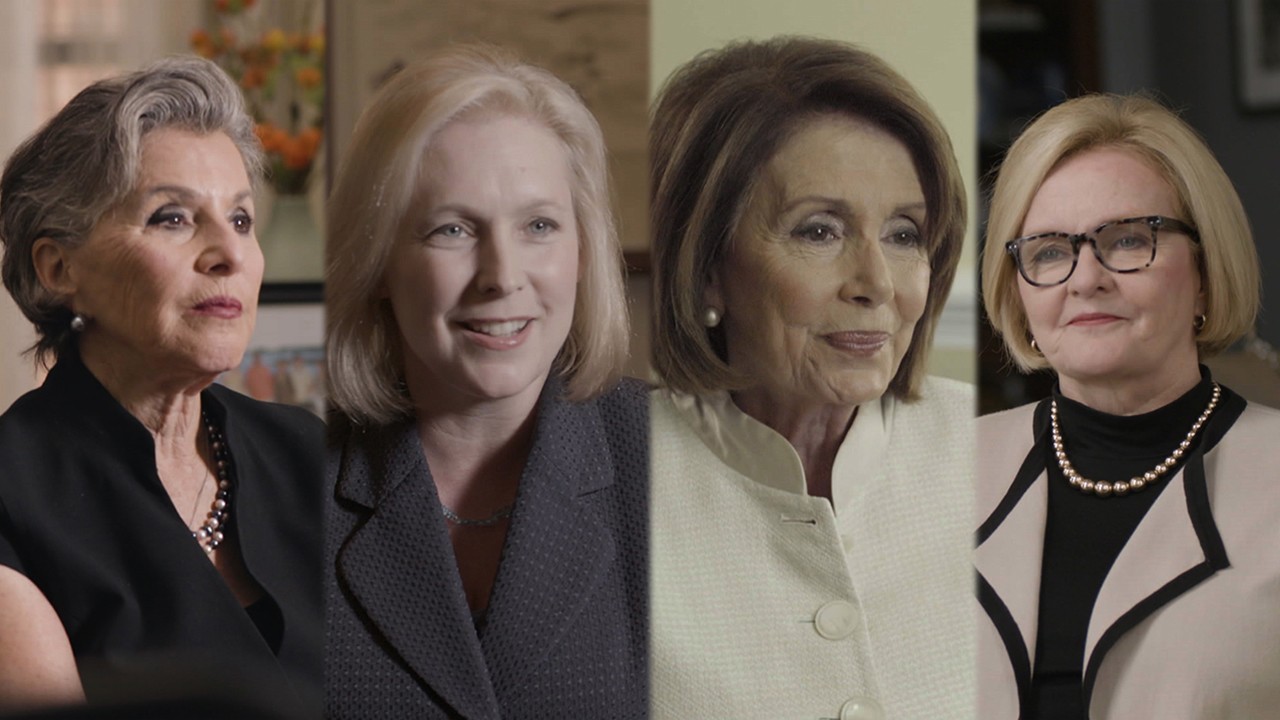Photo via Getty Images.
Newly elected French president Emmanuel Macron has been making headlines for his appointment of women as half of his cabinet members. This is, unfortunately, still newsworthy in 2017 due to the stunningly disparate numbers of women in leadership positions across industries and across the globe—from Oval to corner offices.Critics of identity politics often don't understand that the case for putting more women in power isn't just about being fair with numbers. When women are visible, their symbolic representation is improved, particularly in the eyes of women and girls. It's a trickle-down effect that begins to break down gendered constructs that have caused political and economic progress for half the population to stay relatively stagnant.Not convinced? The women we do have in power have shown us they are far more likely to address core issues for women and families—I'm talking substantive representation, legislating issues from health care to family leave.The World Economic Forum (WEF) found that globally, 23 percent of the political empowerment gap between men and women has been closed—"a trend of slow but steady improvement." To conquer inequitable political representation, over half the world's countries have some form of parliamentary gender quotas in place. France has had such gender parity laws for almost two decades, but because of other electoral structural reforms the country hasn't necessarily seen the political gender representation increases other countries have.The women Macron has just appointed to his cabinet therefore hold even greater importance and potential for change, as seeing women at high, visible positions of power influences perceptions of gender as a whole.Take Uruguay. A new USAID report investigated Uruguayans' views toward women's representation in government before and after the implementation of their legislative gender quota in 2014. After surveying people and coding coverage of the quotas/women's representation in widely consumed newspapers, it found that increased representation positively enhanced women's symbolic representation nationwide—particularly according to the women who were surveyed.
Check out more videos from VICE:
Once they hold these positions of power, women consistently prove themselves capable and inspire changed societal attitudes toward gender by example. But the path to obtaining those seats at the top has many well-ingrained societal roadblocks, which is why quotas and cabinet appointments are so imperative. And this conundrum is not exclusive to politics.WEF says just 59 percent of the economic participation gap between men and women globally has been closed. This is actually the lowest value they have measured in almost a decade, and reflects a continued reversal of years of progress. But countries are responding by mandating equitable gender representation in businesses too.Such hard quota laws on board governance are popular in Europe. Other countries like South Africa have non-binding targets for economic women's participation and have seen recent increasing numbers of women in the boardroom—a trend that speaks to a trickle-down societal change.Could this trend be inching onto the scene in the US private sector as well? Unfortunately the numbers don't look good: Women make up less than 9 percent of top management positions in S&P 1500 companies, and 18 percent of their board seats. Ranked 26th worldwide in women's economic empowerment, the United States has no quotas of any kind (political or economic, hard or soft)—signifying that change may have to come from the bottom up, which will be no easy task.
Advertisement
Advertisement
Check out more videos from VICE:

Once they hold these positions of power, women consistently prove themselves capable and inspire changed societal attitudes toward gender by example. But the path to obtaining those seats at the top has many well-ingrained societal roadblocks, which is why quotas and cabinet appointments are so imperative. And this conundrum is not exclusive to politics.WEF says just 59 percent of the economic participation gap between men and women globally has been closed. This is actually the lowest value they have measured in almost a decade, and reflects a continued reversal of years of progress. But countries are responding by mandating equitable gender representation in businesses too.
If you look to France once more, the country has employed economic gender quotas, as well. And they're working: The country surpassed its 20 percent mandate of women on corporate leadership boards in 2014.The European Parliament's report on the gender quota stated, "Contrary to what opponents in the business sector claimed initially, i.e. that it would not be possible to find competent women to sit on boards, companies with more than 1 billion euros in capital in 2014 nominated 56 percent women, to reach a total number of 30 percent women sitting on boards (a higher number than that established by the law)." French firms are now working toward this year's 40 percent target.Grassroots campaigns organizing for more women in corporate positions of power have actually been growing in recent years.
Advertisement
Grassroots campaigns organizing for more women in corporate positions of power have actually been growing in recent years, as evidenced by 2020 Women on Boards, the Thirty Percent Coalition, and the Every Other One initiative.Should these movements succeed, such change from within the private sector may influence the type of change the U.S. government (which itself ranks 73rd worldwide for women's political empowerment) hasn't—putting more women in power to create symbolic and substantive shifts toward true gender equity.Critics of identity politics often don't understand that the case for putting more women in power isn't just about being fair with numbers.
